Jaromír Hanzlík
Nascimento : 1948-02-16, Český Těšín, Československo

Story

Producer

Screenplay
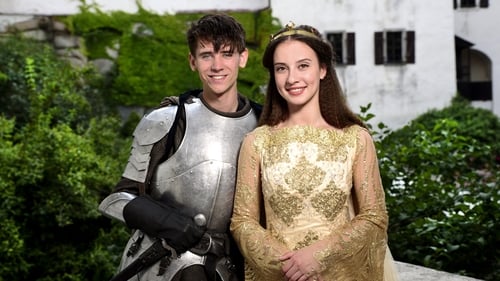
Černokněžník
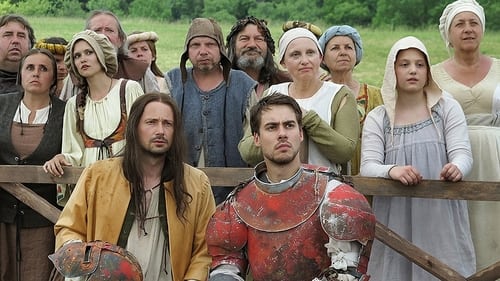
Král Alexandr
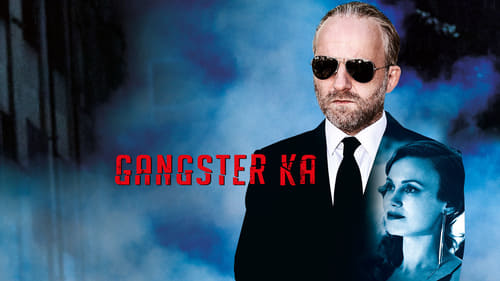
A film based on a book by Jaroslav Kmenta tells the story of a mafioso who got rich by tax fraud of billions of crowns in transactions with petroleum products and who later tried to gain control of the state-owned petroleum concern. The main character is the gangster Radim Kraviec (Hynek Cermák). He was always capable of violence, but when his father is abducted and killed by a competing mafia, he is changed into a murdering monster.

Jarda Hanák

strojvůdce Smejkal
Set against the majestic mountains of central Slovakia, first time director Vladimir Balko explores the difficulties and challenges one former inmate must face upon his release from prison. Tono has just been released after a five-year stint in prison for lumber theft. Although attempting to stay on the straight and narrow, Tono is faced with many obstacles including building a relationship with his son, saving his now fragile marriage, and avoiding the tempting lure of his previous life of crime. A story of friendship and betrayal, SOUL AT PEACE was an official selection at the prestigious Karlovy Vary International Film Festival.

Kornelius

král Ctirad
The filmed fairy-tale is a comedy based on the classical story about Reason and Happiness. This enchanting couple is ever debating on which of the two is more important for mankind, their encounters are watched by the third fairy-tale figure aunt Envy. A story of true love that wins over the evil powers of immortal human envy.

Père d'Alex
Little Rehor isn't allowed to play with the other boys. His only friend is the girl next door, Luci. Rehor's father is doctor on a boat and he has sent Rehor a package with butterfly larvae. When they hatch he discover a fairy who can do magic tricks.

tajemník KV KSČ Jaroslav Mrázek
Life in communist Czechoslovakia in the early 1950s and the punishments for going against the state.

pan Nejedlo
A commemorative and essayistic meditative piece on the Prague quarter Libeň during the 1950s.

Spera
Czechoslovakia 1918. The newly formed National Assembly has made Stoklasa the administrator of the Kratochvile Castle. Although with no aristocratic background, he is a man of fortune and is trying to buy the castle. To impress his neighbors and the local politicians he invites them to a great hunting party. Uninvited comes a man who claims to be Duke Alexej. Stoklasa believes him to be a hustler. This hustler, however, manages to charm all the women before he leaves.

Zajíc
The musical version of the successful play of Oldřich Daněk was transferred to the screen by director Jiří Sequens in 1986. It takes place in the 14th century in Bohemia during the reign of King Wenceslas IV. Heroes of the story are three mercenaries who always fight on the wrong side and are always beaten, but they are moral winners of all conflicts and skirmishes.

Cyrano z Bergeracu

Svačina
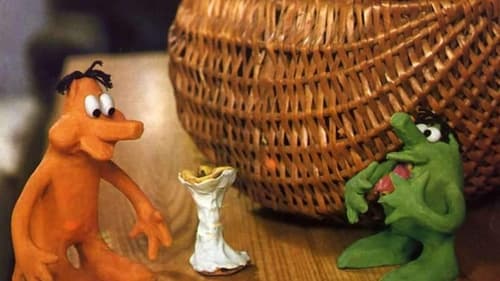
otec Lucie
A second part of a funny adventures of six years old Lucie and her two magic dolls.

otec Lucie
A first part of a funny adventures of six years old Lucie and her two magic dolls.

Ondřej Kára

Fanda

Leli
This movie is based on texts of Bohumil Hrabal, world-known Czech prosaic. It's a story (in a form of a mosaic of short episodes and pictures) about the sadness and happiness of inhabitants of Kersko (Kersko is a small woody area full of cottages and roods). These people are both simple and sensitive, they have their own pleasures (e.g. Leli is a collector of cheap, but inutile things) and the greatest delight of all of them is a hunting. Crude poetics of amateur hunting is screened by dreamy pictures of this area. Menzel mixes sentimental lyricism and rough (but not vulgar!) humor and the outcome is the never-ending landscape of continuous life in the proximate nearness of nature. The performances of actors are brilliant. Both Rudolf Hrusinsky as a Franz and Jaromír Hanzlik as a Leli have nonrecurring charm bottomed on a pain and inebriation. Only the music is not perfect: Jiri Sust usually assembled his film music from his older works and in this movie there is many quotations.

Ladislav Stroupežnický
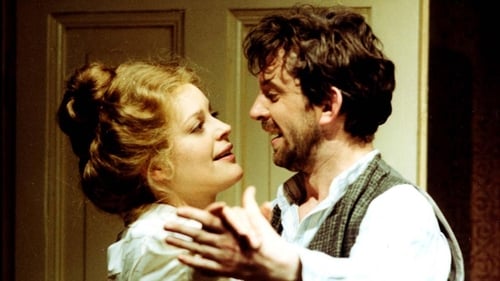
Pepin, Francinův bratr
Francin, manager of a small-town brewery, has a charming wife whose abundant blonde locks are an adornment to the town. Maryska looks ethereal but loves meat and beer, while Francin is an ascetic. The strict members of the brewery board of directors come to audit the accounts, but are diverted from concentrating on Francin's detailed reports by Maryska, who has organized a pig-killing feast and is ably assisting the butcher. When she invites the old curmudgeons on the board to enjoy the fresh pork, they are too happy to agree. Francin doesn't know whether he is going to get a permanent contract. To make things worse his brother Pepin - eccentric, noisy and garrulous - turns up on an indefinite visit.

Brono Popiel

Ingenieur Marcel Zodiak / Moltke
The film is a metaphor for the Cold War. It depicts two neighbouring nations: peace loving Fortuna and the not so peaceful land of the Steel City.

Algernon Moncrieff

Production Design
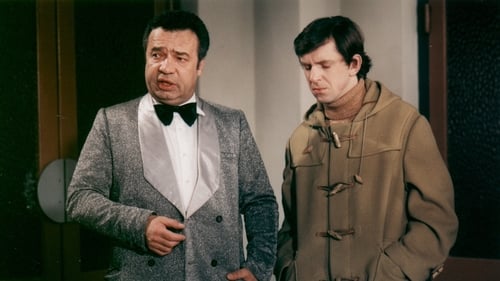
Ondřej
Game Hubač George, honored at Golden Prague 1977 and the MTF Monte Carlo 1978, one of the most original works of Czech Television production. The dramatic story of a father, son and entire family addresses a serious social problem that brings with it dangers of alcoholism.

Zbyněk Kučera
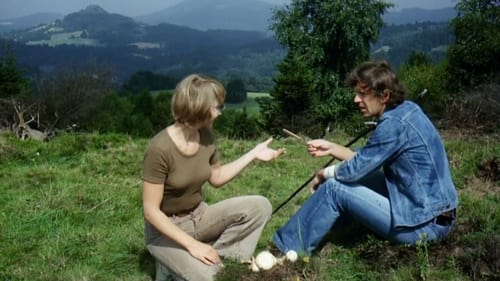
Honza
Hlavními postavami je mladá psycholožka Doubravka a vesnický mladík Honza Macháček. On je traktorista, který při ztřeštěné sázce dočasně přišel o řidičský průkaz, takže teď pase družstevní stádo krav, ona je na chatě se svým chlapcem Bobou, který nepříliš úspěšně studuje medicínu a právě se připravuje na opravné zkoušky. Honzova bezprostřednost, optimismus a přístup k životu i práci ostře kontrastuje se sobeckým, slabošským a nevyrovnaným Bobou a Doubravka si stále víc uvědomuje, že její cit k Bobovi zmizel a doopravdy má vlastně ráda Honzu. Otázkou je, jak se na takovou partii bude dívat její poněkud konzervativní rodina.

Lebeda (voice)

An only son, Jirí Valenta (Jaromír Hanzlík), has been drafted to the army. At the barracks he acquires the nickname Seamstress because he sews rugs in his spare time. One day, his friend introduces him to Julka Vávrová (Jorga Kotrbová), a girl he is desperate to get rid of. The naive Jirí falls in love with the girl and accepts her invitation to spend Easter together in the country. There he learns that the girl is the single mother of the young boy Martínek, whose father is the married tractor driver.


JUDr. Jindřich Mráček
There are still water spirits among us. One group lives in Prague, led by Mr. Wassermann, who is using his wife's family as a servants. All they need is their old house near the river. But the house is to be demolished. They have to stop it. And the only way is to drown Dr. Mrácek, who is responsible for the demolition. But he falls in love with Wassermann's niece Jana. He changes to fish, is mistaken for water spirit from Germany, is drowned and revived again. The other problem is the flour with ears... and so on...

Host
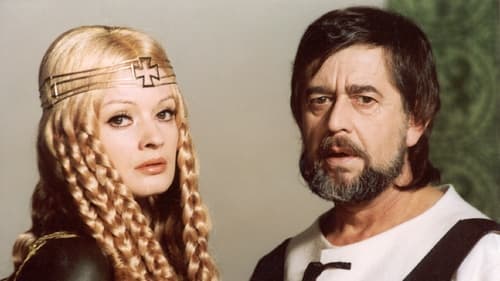
Pešek
No Woman is allowed into Karlstejn Castle! Yet the enamoured Daniele Kolářová and the equally enamoured Jana Brejchová manage to spend one night in disguise in the Castle despite the strict royal ban.

Three short stories. Prague finally sees the approval of the subway construction. Thousands of individuals took part in preparing, course and finalizing construction of subway and their lives crossed at certain points of this construction.

Vláďa (voice)
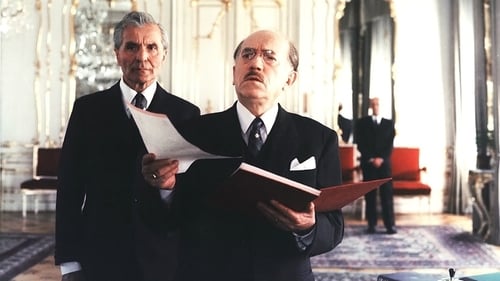
This feature film based on the events of 1938 is a chronicle of the futile efforts of the Czechoslovak president Edvard Benes (Jirí Pleskot), politicians and ordinary citizens, to save the independence and the territorial integrity of the state from the advance of Hitler's Germany. On the 29th of March 1938 the leader of the Sudeten Germans Henlein (Werner Ehrlicher) has a meeting with Hitler (Gunnar Möller). Hitler orders him to intensify pressure on the Czechoslovak government. On the 24th of April in Carlsbad, the Sudetendeutsche Partei (Sudeten German Party) decides upon eight demands that are unacceptable to the Czechoslovak President, since they would ultimately lead to the break-up of the Republic. Benes still shows a certain willingness to negotiate, and Henlein resents this. The Germans are determined to make further negotiations impossible through incidents and violence.
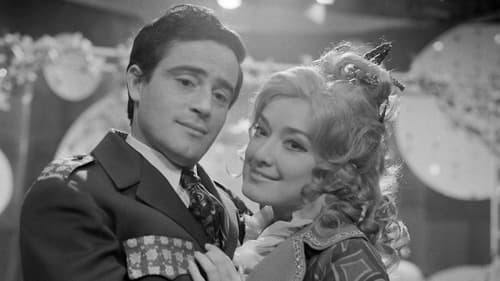
Dalimil

Ondřej
The female employees of the poultry-processing factory find relief from their monotonous work in chatting about weddings and marriages. The very young Zdena (Marta Vancurová), too, dreams about a white veil and an entourage of bridesmaids. On her return home from work, she runs into a peculiar man on an abandoned road who pertinaciously offers to read her palm for a few crowns to buy soup. His augury is rather usual - wealth and poverty, suffering and happiness. Then however, he declares that Zdena must marry exactly on 3 November of that year otherwise she will be unhappy.

Black comedy about a genius inventor and two young, smart and beautiful women. Both of them putting all their effort into getting the one man. This will inevitable lead to all sorts of mischief, crime and even a murder. This murder-comedy, shot at the dawn of normalization has intentionally broke off from any connection to the reality of its time. The director Zdeněk Podskalský has focused on creating intriguing story lines, revolving around the two endeavouring female characters who are fighting for the same man. Two competing parties are not only ready to kill the other, but also (if necessary) the potential groom. This film has enabled the members of the cast, composed mainly of the brightest stars of the Czech acting scene of that time, to show an incredible acting range, from the lightest comedy to the darkest cynical morbidity.
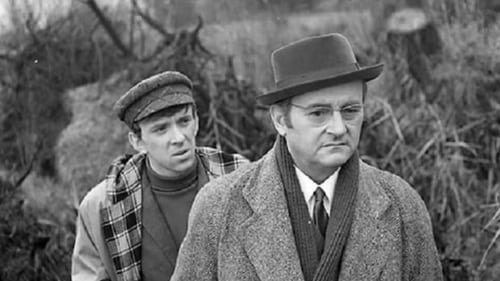
Karlíček
An escort composed of three people transports a huge amount of new one-hundred crown banknotes in a special railway car. At the 196th kilometer, a village girl is waiting at the railway crossing and spots two men removing some packages from the track. The scene is immediately followed by the report of a gun and the unwanted witness is shot dead. Soon afterwards, on the 201st kilometer, the train explodes. Only one of the escorts Lenk (Radoslav Brzobohatý) survives the explosion, taken to hospital with serious injuries. Criminologist Major Kalas (Jirí Sovák) and the very young Second Lieutenant Karlícek (Jaromír Hanzlík) patiently gather facts, leads and testimonies.
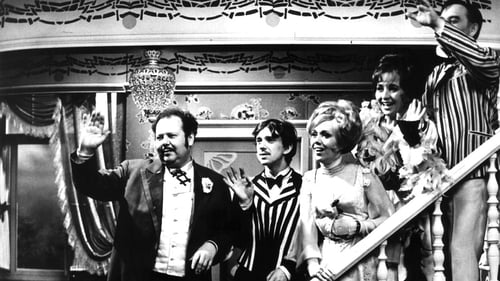
Štěpán
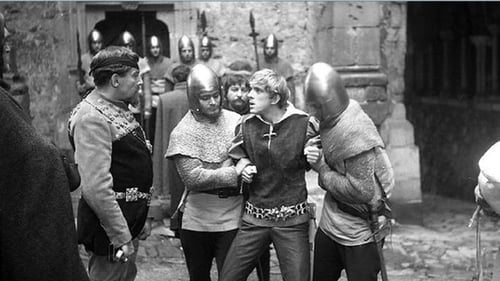
Karel IV
The young Prince Charles (Jaromír Hanzlík), the future King of his country Charles IV, is being educated at the French court in the company of his fiancée Blanche (Daniela Kolárová). One day he receives a summons from his father John of Luxembourg (Milos Kopecký) in Italy. He leaves for Italy accompanied by a deputation from Bohemia. On the way the prince's company fights a battle with armed Milanese against heavy odds. Thanks to Charles's perspicacity, the prince's almost naked soldiers win through. In Lucca in Italy Charles joins his father, and here he experiences an amorous adventure and escapes from the traps laid by the Italian rebels.
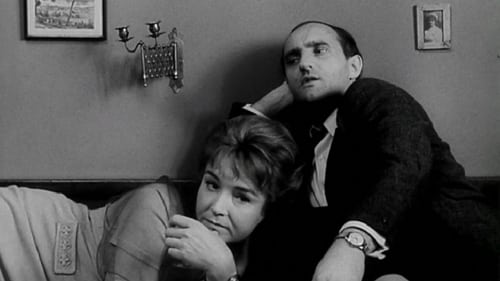
Lieutenant
In the 1950s, Ludvik Jahn was expelled from the Communist Party and the University by his fellow students, because of a politically incorrect note he sent to his girlfriend. Fifteen years later, he tries to get his revenge by seducing Helena, the wife of one of his accusers.

This historical film by Hynek Bočan touches upon the indecisiveness of the Czech nation, ready to bend the backbone in face of foreign rule. Situating the story at the close of the Thirty Year War enabled the depiction of the misery of the people that affects even an impoverished aristocratic milieu. Rudolf Hrušínský appears here in the role of an indecisive knight, persuaded for a long time and in vain to join the anti-Habsburg movement. The story does not only captivate through the depiction of manifold human characters, intrigues and sycophancy, but also through the circumstances ruling over the devastated farmstead, sunk in mud and crudeness. One of the best films with an updating tendency has come into being here, rightly being named along the such greats as Kladivo na čarodějnice (Witches' Hammer).

It is 5 May 1945 and the uprising against the hated German occupiers has broken out in Prague. The Czech guards open the gate of the Pankrác prison to allow the prisoners to escape en masse. Many of them are shot dead by the German guards but young Ruda (Jaromír Hanzlík) manages to run away. He is taken care of by one of the Prague fighters, concierge Kytka. Kytka hides him in the flat of the house's owner where only the young maid Karla (Jana Brejchová) is left, ordering her to take care of Ruda.

Twelve-year-old Jana returns from the hospital. She notices some changes at home and is worried that her parents are going to divorce. In reality, however, they are expecting another child.

Ordinary man making his dirty actions in the small town and his coming to the right side.

Roman (voice)
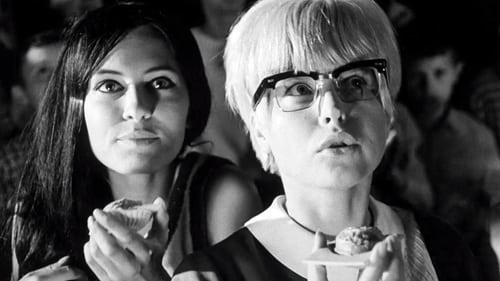
Miki Karásek
A comedy about five students who are un-justly suspected of trying to lose their virginity before their graduation. The five girls first try to defend themselves, but when they find out that nobody believes them - neither the school principal nor even their own parents - they decide to accomplish what they have been falsely accused of. And although their clumsy attempts are mostly comic, at one point they almost cause a big tragedy.

Vojta
A lyrical story about first love, death and disappointment, based on a poem of the same title.

Hans
A WW2 story of a young Austrian soldier running from the Russian army and a woman whom he forces to come along in order to save his wounded mate.
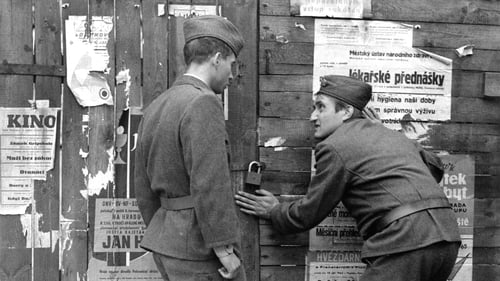
vojín Petrus
Jurácek's feature debut is shot in two parts. In the first, a corporal accompanies a new recruit with a sore Achilles tendon for his physical, and all the girls or young women they see are played by the same actress (Ruzickova). In the longer second segment, shot with the help of the Czechoslovakia army, the soldiers pass the time during basic training and maneuvers by talking about girls.

Michal Hrabák
Michal's father and his friends are stigmatized by their war experience and the post-war social deformations in which they took part either directly, or watched them cowardly and in silence. They are trying to repress their feelings of guilt and justify their behavior to the young generation with memories of their heroic war feats. Michal, however, does not want to have anything to do with their problems. He subconsciously perceives the unpleasant atmosphere in the family as well as his father's hypocrisy. After one of many quarrels with his father, he runs away from home, determined to go his own way.






























